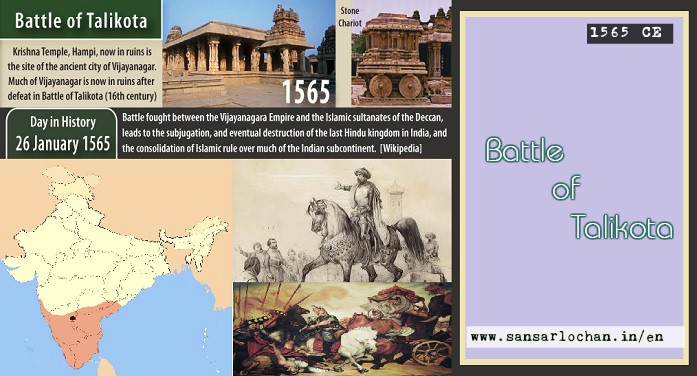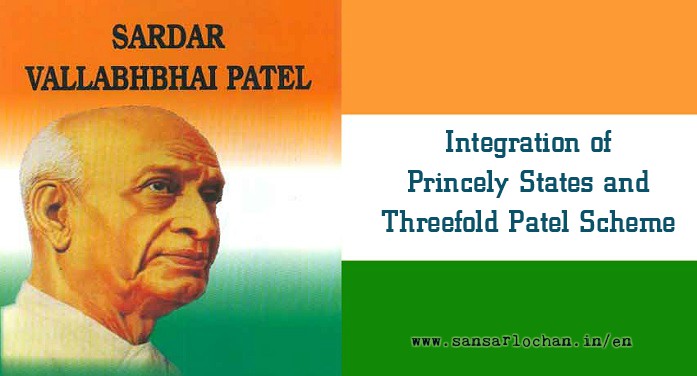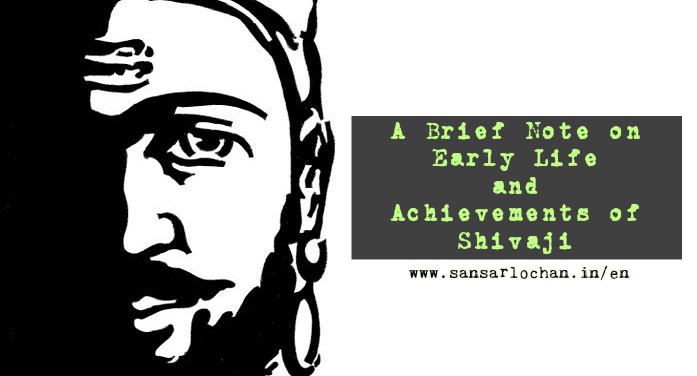Town planning is the unique feature of Indus valley civilization. Their town planning proves that they lived a highly civilized and developed life. Indus people were the first to build planned cities with scientific drainage system. The Indus cities were built on an uniform plan. Town planning was amazing in nature. A few cities have citadels to the West built … Read More
Reforms of Alauddin Khilji : Administrative, Military, Revenue & Economic
In this article, we will discuss about administrative, military, revenue and economic reforms done by the Sultan Alauddin Khilji. We have prepared this short note from the help of NCERT books and Wikipedia. He Administrative Reforms Alauddin Khilji was a strong and efficient ruler. He set up a strong central government. He was the highest authority of the state and … Read More
Battle of Talikota 1565 CE : Causes and its Results
The battle of Talikota was a decisive battle in the history of Vijayanagara empire. The battle was fought in a range of 40 kms. This battle was fought between the villages of Rakkasagi and Tangadagi, near Talikota. Hence it was called the battle of Talikota or Rakkasa-Tangadi. Some scholars believe that the decisive battle was fought at Krishna-Bannihatti. Hence it is called the … Read More
Integration of Princely States and Assimilation Strategy of Patel
In this article, we are giving a brief note on the integration of Princely States and threefold assimilation strategy adopted by Sardar Vallabh Bhai Patel. Sources we used for this article are Wikipedia and NCERT. Integration of Princely States British India consisted of British Indian Provinces and the Princely States. The British Indian provinces were directly under the control of … Read More
Very Short Note on Independence and Partition, Source NCERT
I am making a very short note on Independence and Partition of India with the help of NCERT History Books. Hope you will like it. So here is the story:- Independence and Partition After the second world war, the Labour Party came to power in England and Clement Atlee became the Prime Minister. He deputed a commission to India in … Read More
Places of Historical Importance – UPSC Map Related Questions
Here we are giving a list of some historical places of India and their importance in the Indian history. Sometimes in the UPSC mains examination, students are asked to explain the historical importance of the particular places given on the outline map of India. Places of Historical Importance Harappa Takshashila Pataliputra Badami Kanchi Halebeedu Delhi Devagiri Panipat Agra Hampi Bidar … Read More
The Period of the Moderates and the Extremists 1885-1920
The Period of the Moderates 1885-1905 From 1885 to 1905 the Indian National Congress was led by Dadabhai Naoroji, Pherozshah Mehta, Badruddin Tyabji, Anandacharalu, Surendranath Banerjee, Gopal Krishna Gokhle etc. They expressed loyalty to the British and believed in the British benevolence. They intended to pressurize the British Government through Prayers, Petitions and Protests. They organized public meetings, submitted memorandums … Read More
A Brief Note on Early Life and Achievements of Shivaji
The decline of Mughals led to the rise of independent states in different parts of India. Among them the Marathas were prominent. Shivaji was the founder of Maratha Kingdom. In this post, we will mention about early life of the great Shivaji and his achievements in different conquests. Early life of Shivaji Shivaji was born at Shivaneri in 1627 CE. … Read More
Harshavardhana – His life, Achievements and Connection with Buddhism
Today in this post we will discuss about the King Harshavardhana’s (Raja Harsha) biography (his parents’ and siblings’ names), his achievements, the story of war between Harshavardhana Vs Pulakeshin II and his connection with Buddhism and Buddhist councils organised by him. Biography (His Life) Harshavardhana was the greatest ruler of the Vardhana empire. He came to power in 606 CE. Prabhakara … Read More
Short note on Administrative System of Chola Kingdom
Introduction : Chola administration Cholas had good administrative system. They had a centralised administrative system. King was not absolute. The practice of crown prince becoming the king was in vogue. A council of Ministers assisted the king. The intimate group of the King was called “Udanakootam”. The empire was divided into many divisions (Mandala). During the time of Rajraja Chola I … Read More


